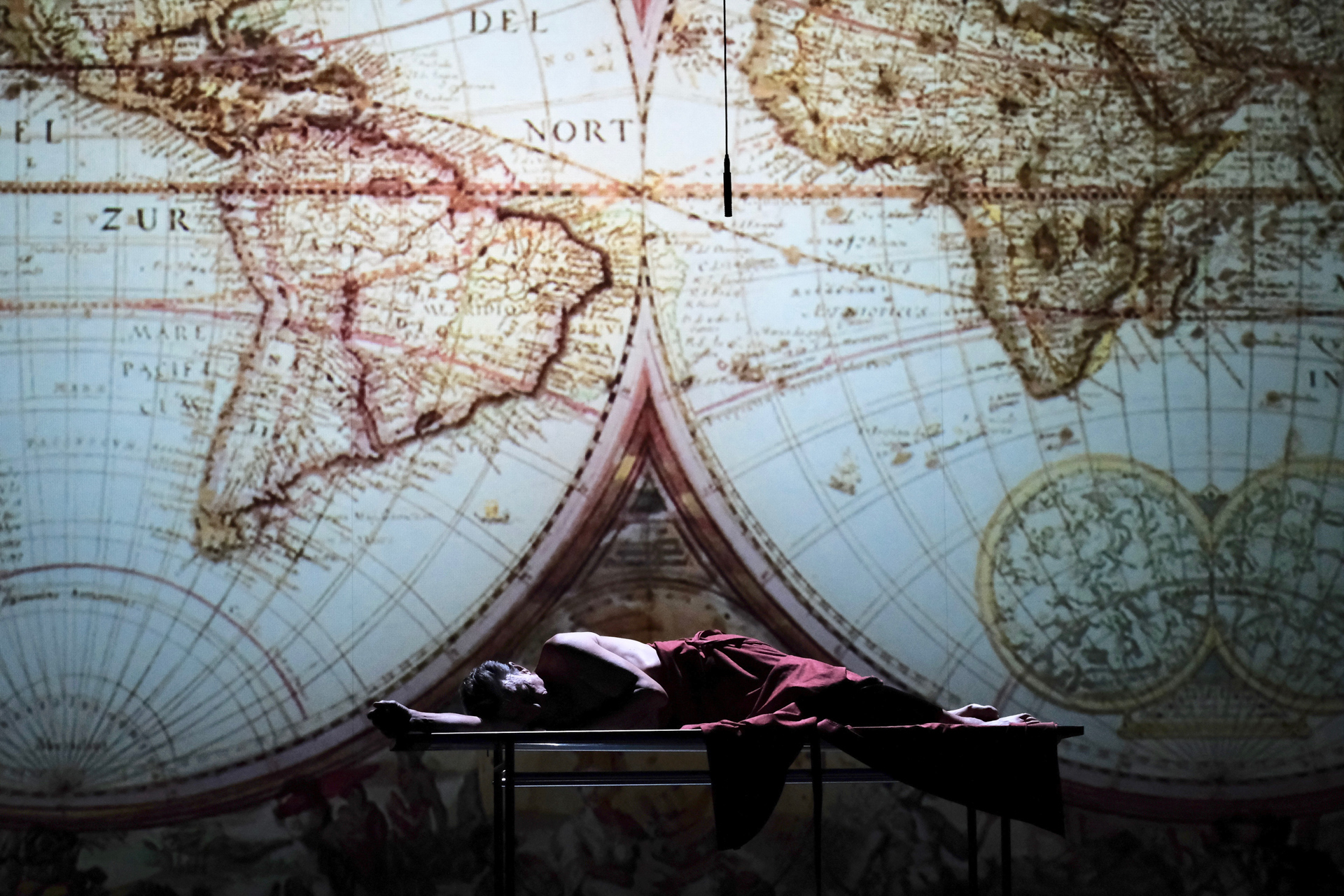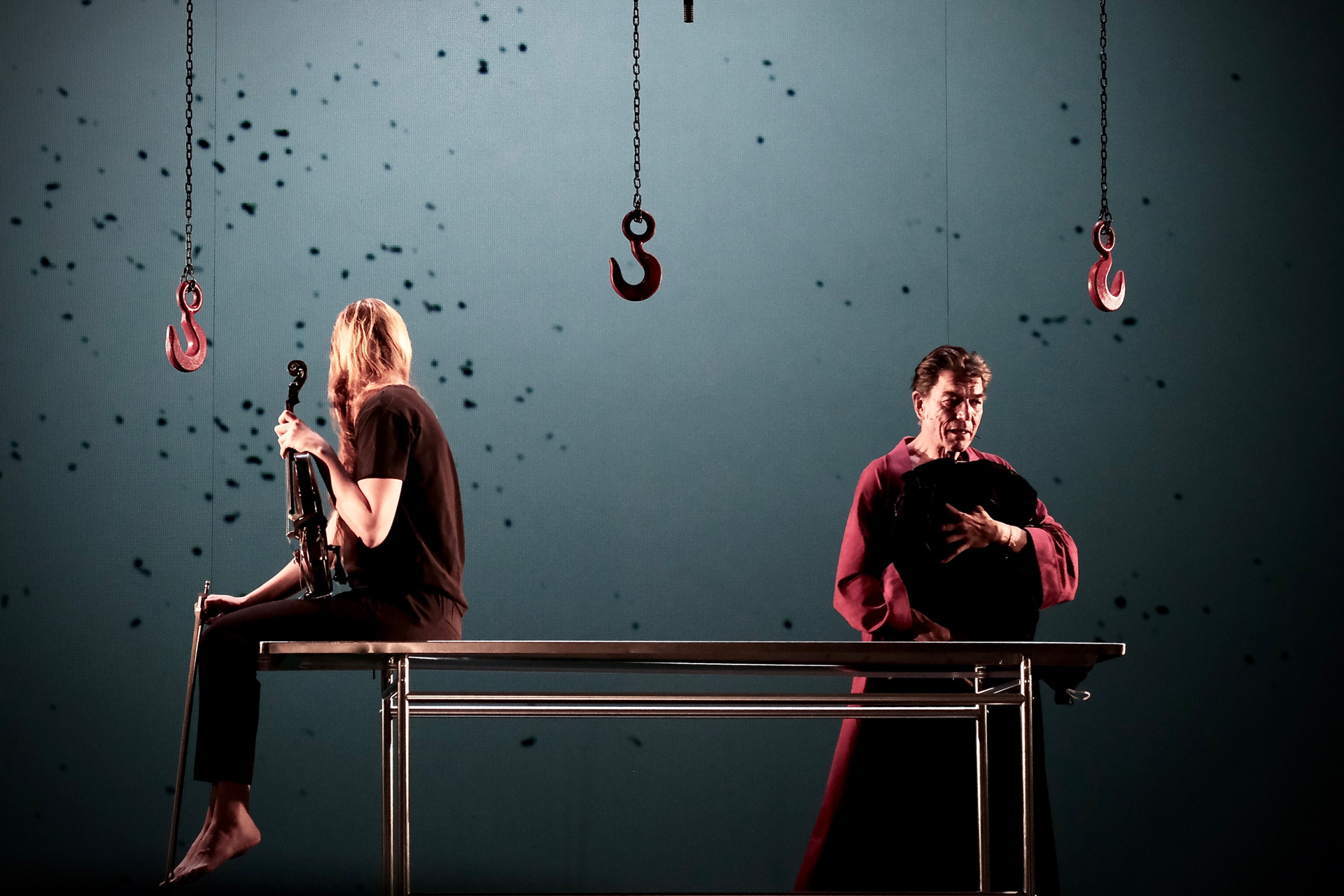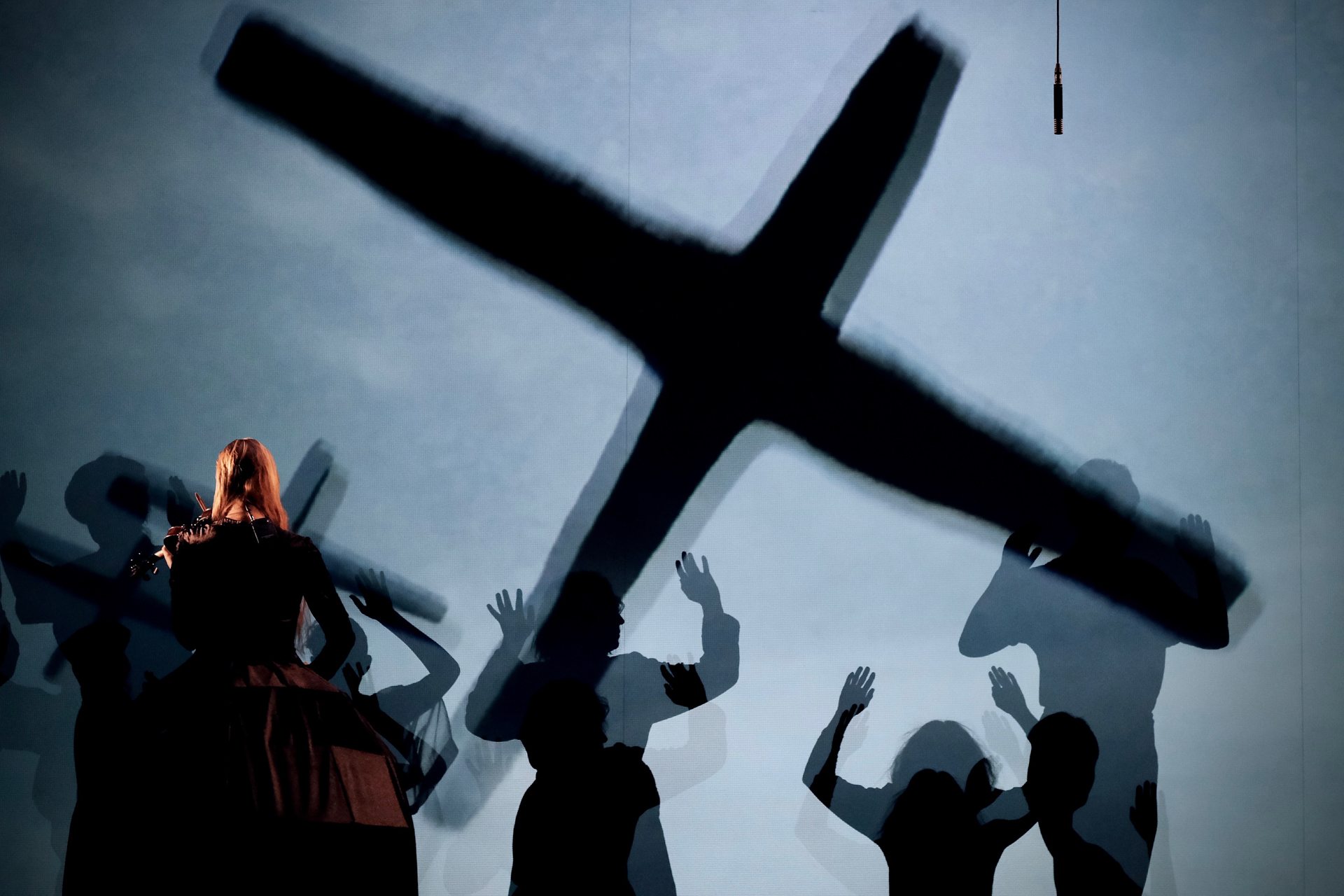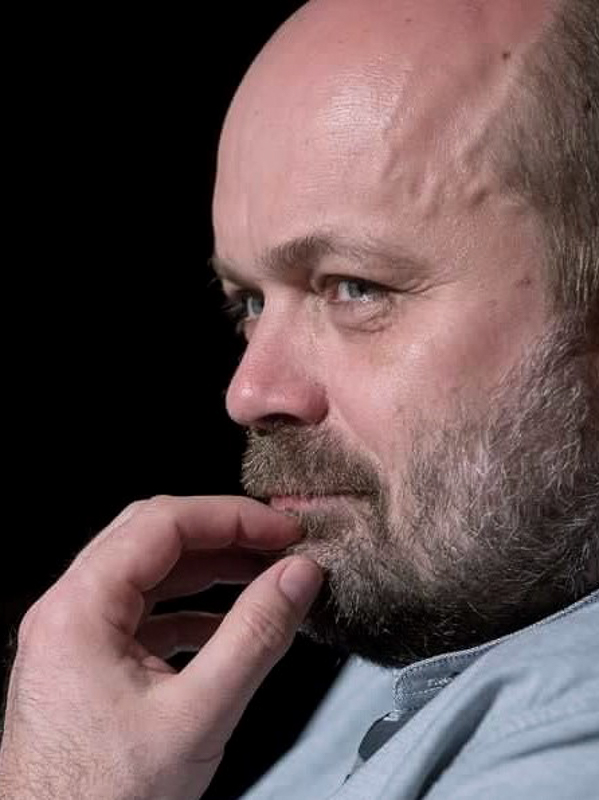



Photo: Norbert Rakowski
William Shakespeare
KING Lear
Lear is one of Shakespeare’s crowning achievements, a legendary drama. Its plot has been the subject of numerous interpretations, sometimes extremely different from each other, but all agree on one thing: Shakespeare’s vision is one of the deepest and at the same time most pessimistic studies of human nature. In order to tackle this text, a director must have not only professional skills and knowledge of the drama, but also human experience, as only this allows one to penetrate the motivations and behaviour of the characters.
The challenge of staging the arch-drama – great both for an individual artist and for both theatre companies joining forces – is taken up by Anna Augustynowicz, a director of many awards and experience, for whom Shakespeare’s dramaturgy is, next to new, contemporary texts, the most important material for stage work.
The minimalism of the scenic means used, the restraint in the display of the director’s ego, and at the same time the perfection and awareness of the stage and the sensitivity to the issue of the play’s communicativeness mean that the author’s intentions come through more clearly in her productions than elsewhere.
“Few actors have dared to play this character, which has the format of a Michelangelo figure,” wrote G. T. di Lampedusa. Mirosław Zbrojewicz will play the lead role – which has been created by artists of the highest calibre (in Poland, among others, Gustaw Holoubek, Jerzy Trela, Andrzej Seweryn, Daniel Olbrychski, Zbigniew Zapasiewicz). The rest of the cast will be filled by women, which is both a perverse reversal of the Elizabethan tradition and a play on the stereotypes of the ‘masculine’, patriarchal culture of which King Lear is undoubtedly the embodiment, and whose disintegration we are seeing today.
Shakespeare uncovers the authoritarian mechanism of power that we today call populism. The love of power becomes equal to the love of war. An entire community becomes enmeshed in this war. Shakespeare sharply depicts the conflicts that arise from violence firmly rooted in patriarchal culture. We will explore why, for people, war can sometimes be beautiful.
Anna Augustynowicz
HELENA Modrzejewska THEATRE IN LEGNICA
Premiere
12th september 2020
Scene
Gadzicki stage
JAN KOCHANOWSKI TEHATRE IN OPOLE
Premiere
4th june 2021
Scene
the large stage
Duration
120 MINS (no interval)
Suggested age
+16
Kiedy gramy?
09.09. / poniedziałek
19.00
09.09. / poniedziałek
19.00
09.09. / poniedziałek
19.00
„(…) potrafi rozśmieszyć, a nieraz też skłonić do refleksji. Działa jak dobrze skrojone kino gatunkowe, z rozwiązaniami z którymi teatr, moim zdaniem, mógłby częściej eksperymentować”.
Henryk Mazurkiewicz, teatralny.pl
„(…) potrafi rozśmieszyć, a nieraz też skłonić do refleksji. Działa jak dobrze skrojone kino gatunkowe, z rozwiązaniami z którymi teatr, moim zdaniem, mógłby częściej eksperymentować”.
Henryk Mazurkiewicz, teatralny.pl
„(…) potrafi rozśmieszyć, a nieraz też skłonić do refleksji. Działa jak dobrze skrojone kino gatunkowe, z rozwiązaniami z którymi teatr, moim zdaniem, mógłby częściej eksperymentować”.
Henryk Mazurkiewicz, teatralny.pl
„(…) potrafi rozśmieszyć, a nieraz też skłonić do refleksji. Działa jak dobrze skrojone kino gatunkowe, z rozwiązaniami z którymi teatr, moim zdaniem, mógłby częściej eksperymentować”.
Henryk Mazurkiewicz, teatralny.pl
„(…) potrafi rozśmieszyć, a nieraz też skłonić do refleksji. Działa jak dobrze skrojone kino gatunkowe, z rozwiązaniami z którymi teatr, moim zdaniem, mógłby częściej eksperymentować”.
Henryk Mazurkiewicz, teatralny.pl
Festivals
creators

Direction and Text Adaptation
Anna Augustynowicz

Set Design
Marek Braun

Costume Design
Tomasz Armada

Music
Jacek Wierzchowski

Lighting Design
Krzysztof Sendke

Visualisations
Wojciech Kapela

Script Translation
Stanisław Barańczak

Assistant Director
Jan Kamiński

Costume Designer’s Assistant
Martyna Konieczny

Muzyka
Jacek Wierzchowski
Script Translation
Stanisław Barańczak
Assistant Director
Jan Kamiński
Costume Designer’s Assistant
Martyna Konieczny
Stage Coordinator
(Jan Kochanowski Theatre)
Urszula Kraska
Stage Coordinator
(Helena Modrzejewska Theatre)
Mariusz Sikorski
Stage Coordinator
(Helena Modrzejewska Theatre)
Mariusz Sikorski
Reżyseria
Jędrzej Wielecki
Reżyseria
Jędrzej Wielecki
Reżyseria
Jędrzej Wielecki
Reżyseria
Jędrzej Wielecki
cast
Lear, King of Britain
Mirosław Zbrojewicz
King of France / Knight
Karolina Kuklińska
The Duke of Burgundy / Oswald
Beata Wnęk-Malec
The Duke of Cornwall
Gabriela Fabian
The Prince of Scotland
Cecylia Caban
The Earl of Kent
Anita Poddębniak
The Earl of Gloucester
Judyta Paradzińska
Edgar, Gloucester’s son / Lear’s jester
Weronika Krystek
Edmund, Gloucester’s illegitimate son
Aleksandra Listwan
Lear’s daughters:
Goneryla
Ewa Galusińska
Regana
Zuza Motorniuk
Kordelia
Magda Grab
with:
Jowisz
Katarzyna Dworak
Junona
Ada Szczepaniak / Magdalena Maścianica
Minerwa
Katarzyna Osipuk
Kacper Sasin
Kacper Sasin
Kacper Sasin
The partner and co-producer of the performance is Helena Modrzejewska Theatre in Legnica














